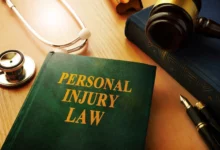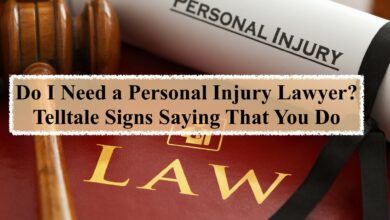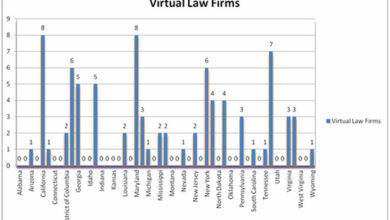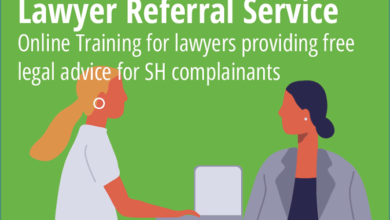How to Be Prepared for Your Consultation with a Lawyer
When faced with legal issues, seeking the assistance of a lawyer is crucial. Whether you are dealing with a personal injury case, divorce, or any other legal matter, it is essential to be prepared for your consultation with a lawyer. This article will provide valuable insights and tips on how to make the most out of your consultation, ensuring that you are well-informed and ready to navigate the legal process.
1. Research and Understand Your Legal Issue
Prior to your consultation, it is essential to research and understand your legal issue. Familiarize yourself with the relevant laws, regulations, and processes related to your case. This will enable you to have a basic understanding of your situation and ask informed questions during the consultation.
For example, if you are seeking legal advice for a personal injury case, you should research the applicable personal injury laws in your jurisdiction, understand the statute of limitations, and gather any relevant documents or evidence related to your case.
2. Compile Relevant Documents and Information
Organizing and compiling all relevant documents and information related to your case is crucial before meeting with a lawyer. This includes any contracts, legal agreements, court documents, correspondence, and any other supporting evidence.
Providing your lawyer with a comprehensive overview of your case will enable them to assess the situation more effectively and provide you with tailored advice. It will also save time during the consultation, allowing you to discuss more specific details and concerns.
3. Prepare a List of Questions
Preparing a list of questions is essential to make the most out of your consultation. Think about the specific concerns, doubts, or uncertainties you have regarding your case, and jot them down. This will ensure that you cover all the important aspects during your meeting.
For example, if you are consulting a divorce lawyer, you may want to ask about the potential outcomes of child custody arrangements, division of assets, and the overall timeline of the divorce process.
4. Be Honest and Transparent
During your consultation, it is crucial to be honest and transparent with your lawyer. They are there to help you, and providing them with accurate and complete information is essential for them to give you the best advice.
Remember that lawyer-client privilege protects the confidentiality of your discussions, so you can feel comfortable sharing all the necessary details without fear of disclosure.
5. Take Notes
During your consultation, take notes to ensure that you don’t miss any important details or advice provided by your lawyer. Jotting down key points will help you remember the information discussed and refer back to it later.
Additionally, writing down any action items or next steps will help you stay organized and focused on resolving your legal issue.
6. Understand the Cost and Fee Structure
Before hiring a lawyer, it is essential to understand their cost and fee structure. During your consultation, ask about their billing practices, such as hourly rates, flat fees, or contingency fees.
Understanding the cost involved will help you plan your budget and avoid any surprises down the line. It is also important to discuss any potential additional costs, such as court fees or expert witness fees, so you can make an informed decision.
7. Evaluate the Lawyer’s Expertise and Compatibility
During the consultation, evaluate the lawyer’s expertise and compatibility with your case. Ask about their experience in handling similar cases, their success rate, and their general approach to resolving legal issues.
It is also crucial to assess whether you feel comfortable working with the lawyer and if you have confidence in their abilities. Building a good rapport and trust with your lawyer is essential for a successful attorney-client relationship.
8. Discuss Potential Outcomes and Strategies
Ask your lawyer about the potential outcomes of your case and the strategies they recommend. Understanding the possible scenarios and the steps involved will help you set realistic expectations and make informed decisions.
For example, if you are consulting a criminal defense lawyer, discuss the potential defenses, plea bargains, or trial strategies that could be employed in your case.
9. Assess the Timeline
Discuss the expected timeline of your case with your lawyer. Understanding the duration of the legal process will help you plan and manage your expectations.
Keep in mind that legal proceedings can be complex and time-consuming, so it is important to have a realistic understanding of the time it may take to reach a resolution or achieve your desired outcome.
10. Follow-Up and Take Action
After your consultation, it is important to follow up and take action based on the advice and recommendations provided by your lawyer. This may include gathering additional evidence, filing necessary paperwork, or scheduling further meetings.
Staying proactive and engaged in your case will increase the likelihood of a successful outcome and ensure that you are well-prepared for any future legal proceedings.
Conclusion
Being prepared for your consultation with a lawyer is crucial for maximizing the benefits of the meeting. By researching and understanding your legal issue, compiling relevant documents, preparing questions, and being honest and transparent, you can ensure that your consultation is productive and informative.
Remember to take notes, understand the cost and fee structure, evaluate the lawyer’s expertise and compatibility, discuss potential outcomes and strategies, and assess the timeline of your case.
By following these tips, you will be well-prepared to navigate the legal process and make informed decisions regarding your legal issue.
FAQs After The Conclusion
1. How long does a consultation with a lawyer usually last?
A consultation with a lawyer typically lasts between 30 minutes to an hour. However, the duration may vary depending on the complexity of your case and the lawyer’s schedule.
2. Is a consultation with a lawyer free?
Some lawyers offer free initial consultations, while others may charge a nominal fee. It is advisable to inquire about the consultation fee beforehand to avoid any surprises.
3. What should I bring to my consultation with a lawyer?
You should bring any relevant documents, contracts, court papers, or evidence related to your case. It is also helpful to bring a list of questions and a notepad to take notes during the consultation.
4. Can I consult multiple lawyers before making a decision?
Yes, it is common to consult multiple lawyers before making a decision. This allows you to compare their expertise, communication style, and fee structure to choose the one that best suits your needs.
5. What happens after the consultation?
After the consultation, you should follow up with the lawyer and take any necessary action based on their recommendations. This may include signing an engagement agreement, providing additional documents, or scheduling further meetings.
Summary
Preparing for your consultation with a lawyer is crucial for maximizing the benefits of the meeting. By researching your legal issue, compiling relevant documents, preparing questions, and being honest and transparent, you can ensure a productive consultation. Understanding the cost, evaluating the lawyer’s expertise, and discussing potential outcomes will help you make informed decisions. Remember to take notes, assess the timeline, and follow up with necessary actions. By following these steps, you will be well-prepared to navigate the legal process and achieve the best possible outcome for your case.









